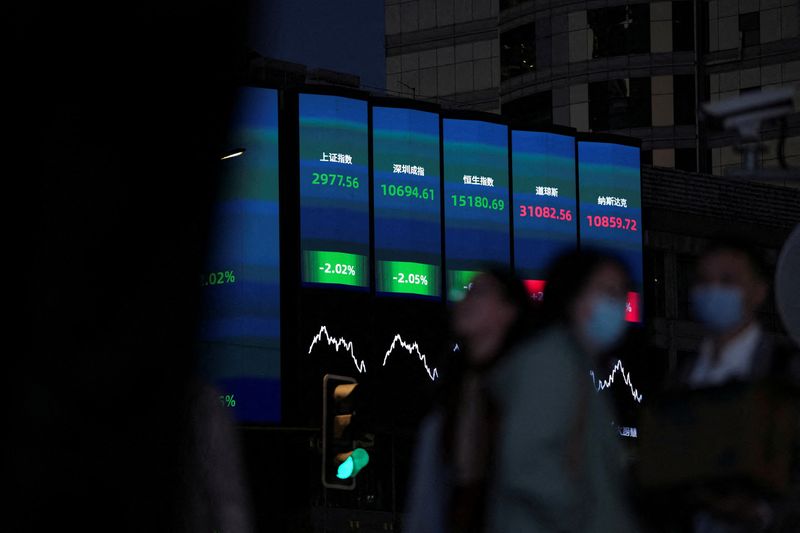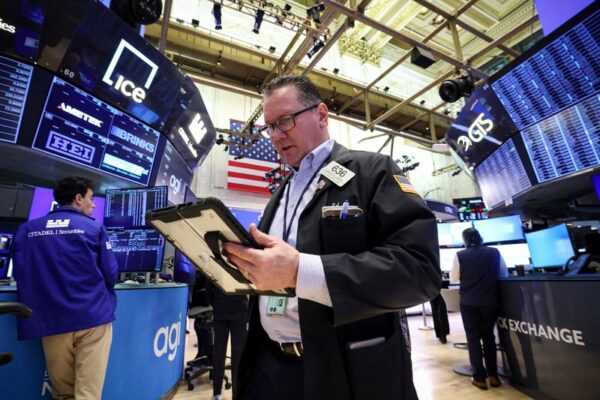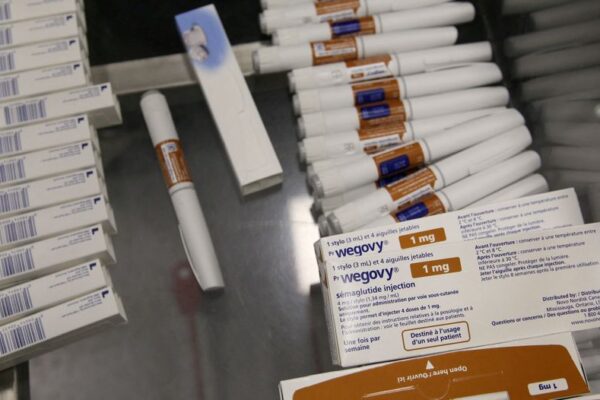Asian shares mixed as China growth worries crimp U.S. debt ceiling optimism
By Ankur Banerjee
SINGAPORE (Reuters) - Asian shares rose on Friday and the dollar hung near a two-month peak as increased hopes of a deal over the U.S. debt ceiling and strong economic data lifted sentiment, while Japan's Nikkei jumped to highest in nearly 33 years.
MSCI's broadest index of Asia-Pacific shares outside Japan was up 0.20% in choppy trading and was set to clock a gain of 0.6% for the week, its best run in over a month.
Australia's S&P/ASX 200 index rose 0.66%, while Japan's Nikkei continued its ascent, rising to its highest since August 1990, during the country's so-called bubble era.
A series of strong corporate results, an economy that is showing signs of a revival and a renewed interest from foreign investors in the wake of increased investment by Warrant Buffett has boosted Nikkei, with the index soaring 18% in the year, far outperforming other major Asian markets.
Investor attention has been firmly on the negotiations over U.S. debt ceiling and rising optimism that a deal could be reached soon sent U.S. shares higher overnight [.N]. E-mini futures for the S&P 500 rose 0.17% in Asian hours.
Futures indicated European stocks were set to open higher, with Eurostoxx 50 futures up 0.44%, German DAX futures up 0.41% and FTSE futures up 0.23%.
U.S. President Joe Biden and House of Representatives Speaker Kevin McCarthy, the top Republican in Washington, hope to finalise a deal on the debt ceiling after Biden returns from the Group of Seven meeting in Japan on Sunday.
"What makes things more complicated this year is that the Democrats and Republicans are so wide apart from each other ... negotiations will take a long time because each one is trying to get something out of that negotiations," said Alexandre Tavazzi, head of CIO office and macro research for Pictet Wealth Management.
In China, data this week showed the economy lost momentum at the beginning of the second quarter, stoking worries over the wobbly post-COVID-19 recovery.
China's blue-chip CSI300 Index rose 0.20%, while the Shanghai Composite Index was up 0.13%, having reversed from earlier losses.
Hong Kong's Hang Seng index fell 1%, dragged down by tech stocks after Alibaba (NYSE:BABA) Group Holding Ltd reported a lower-than-expected 2% rise in quarterly revenue. The index is down 1.2% for the year.
"It appears momentum from the reopening may have faded quicker than in other countries and further policy easing may be required," said Shane Oliver, chief economist at AMP (OTC:AMLTF).
Meanwhile, data overnight showed fewer-than-expected Americans filed initial jobless claims last week, lowering odds the Federal Reserve will cut interest rates before year-end.
Hawkish rhetoric from Fed speakers continued with Dallas Fed President Lorie Logan and St. Louis Fed President James Bullard saying inflation was not cooling fast enough to allow the Fed to pause its interest-rate hike campaign.
The Fed has lifted borrowing costs at each meeting since March 2022, bringing them from near zero to a 5.00-5.25% range as of early this month.
Markets are now pricing in a 36% chance of a 25 basis point hike when the Fed meets next month, compared with 10% chance a week earlier, CME FedWatch tool showed.
"It's still a difficult call, whether they need to hike again or not," said Robert St Clair, head of investment strategy at Fullerton Fund Management in Singapore.
"There's encouraging signs for inflation across the board, but the one that is still quite sticky is the services inflation," he said. "Things are still going to be data driven."
Investors will parse through comments from Fed Chair Jerome Powell's panel discussion later in the day to gauge the path the central bank is likely to take.
In the currency market, the yen strengthened 0.24% to 138.40 per dollar, but was hovering near the six-month low of 138.75 touched overnight.
Against a basket of currencies, the dollar rose 0.029% and was wedged near a two-month high.
The offshore yuan fell to 7.0677 per dollar, the weakest since Dec. 2. Analysts predict more weakness in the future and point to the Fed's policy as being the bigger driver than economic weakness at home.
U.S. crude rose 0.65% to $72.33 per barrel and Brent was at $76.43, up 0.75% on the day.
Spot gold added 0.3% to $1,963.59 an ounce.
(This story has been refiled to correct grammar in the headline)












 Bitcoin
Bitcoin  Ethereum
Ethereum  Tether
Tether  XRP
XRP  USDC
USDC  Solana
Solana  TRON
TRON  Dogecoin
Dogecoin  Lido Staked Ether
Lido Staked Ether